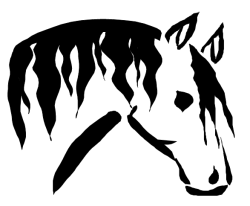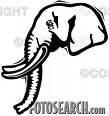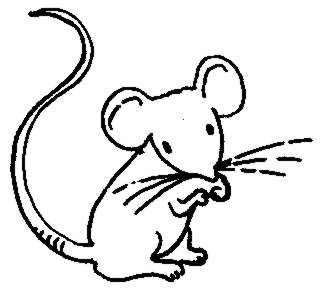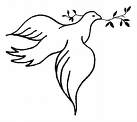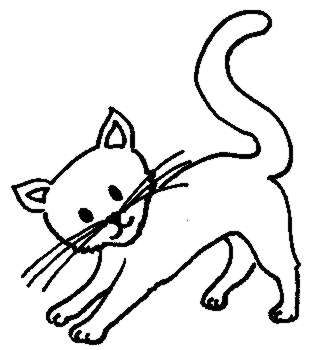ANIMALS IN HUMAN LIVES
Complete the text with the words from the box (uzupełnij tekst słowami z ramki)
in(x2), to(x3), for(x4), on(x2), with(x2), without, about, at, than, by, a, of
|
Most families in the world have some kind 1…… pet: a dog, a cat or 2…… least a hamster or a fish. People have had contact 3…… animals for centuries and their relationships have always been varied. People loved animals and feared them, worshipped them and hated them but what is most important used them.
History shows that men can be very cruel 4…… animals but they sometimes treat them better 5…… other people. In ancient Egypt, people believed that the cat was a god.
People have always had 6…… lot of respect 7…… their animal friends and used to paint their pictures 8…… the walls of caves centuries ago. Nowadays pets have their own hospitals, cemeteries, hotels, restaurants and even hairdressers'
But the process of becoming a pet is not easy 9…… a wild animal. In order 10…… become men's best friends animals have to lose a large part of their intelligence. Pet rabbits 11…… example, are far less intelligent than their wild cousins.
Of course man doesn't always keep animals for pleasure. Many animals have 12…… work for their masters, like the teams of husky dogs working 13…… Antarctica. Horses still work in fields and dogs protect their masters' houses.
14…… the other hand, for many animals the contact 15…… people didn't turn out to be so good. Bulls killed in bullfighting, animals used 16…… scientists to test new medicines or cosmetics are only few examples of man's cruelty. They cannot complain 17…… their pain, they are suffering 18…… silence. Many people, however, fight 19…… the animal rights. Animals are trusting and loving creatures and they can give a lot of love and loyalty to their owners if they are treated well. If we don't stop destroying their natural habitats, killing for pleasure or financial reasons, we will soon find ourselves in a world 20…… birds singing in the morning, dogs waking us up and cats lying in our beds. And after all only animals are people's true friends.
Name the parts of animal bodies (nazwij części ciała zwierząt)
Write one animal in each gap (w każdą lukę wpisz nazwę zwierzęcia
For each animal write one word meaning a group of (do podanych zwierząt dopisz słowa oznaczające ich grupę np. wataha wilków, ławica ryb, etc.)
What animals are described by the definitions? (Jakie zwierzęta odpowiadają poniższym definicjom)
An elegant white bird with long neck …………
A small four legged animal with horns kept for milk …………
A water animal with a shell which can pinch you …………
An insect with big colourful wings …………
A small reptile with legs …………
An insect which may transmit malaria …………
a small animal with long ears which jumps and may be kept as a pet …………
An African animal with long legs and neck …………
A scary insect which catches flies …………
A baby dog …………
Complete the sentences with appropriate words from the list
She climbed the tree and sat on a thick ………
Some types of ……… which you find in the forest are poisonous
The tree survived the dry period because its ……went very deep underground
A plant has roots, ……… and a flower
In autumn trees are covered with beautiful colourful ………
Roses have ……… for protection
Breech trees have beautiful white ………
Spring is the season when all fruit trees are covered with white and pink ………
In the summer ………become flowers
Old trees may have really thick ………
Match the types of water with their definitions. (Połącz typy wody z definicjami)
stream
puddle
drizzle
source
waterfall
downpour
dew
pond
lake
well
A place where a river falls from a higher to a lower place
A structure from which people used to draw water
A small clean river usually in the mountains
A small artificial lake in a garden
A very light rain
A sudden heavy rain
A place where rain water fills a hole in a street
A place to which one or more rivers flow
A place usually in the mountains from which a stream starts
The drops of water on the grass early in the morning
Rewrite the sentences so that they keep their meaning. (Przepisz zdania zachowujÄ…c ich znaczenie)
The films you lent me are not interesting
We have only five apples left
The doctors were both incompetent
Nobody came to the party
Jane and her sister are lawyers
Nobody in the team failed
The police asked all people in the area
Not all the branches were broken
Choose the right option (Wybierz poprawnÄ… opcjÄ™)
There were none/no places in the car park left
His two sisters every/each have their own office
Not one/Not no students passed the test
Some of/Some people prefer books to films
I'm sorry but neither/either of you got the answer right
When he went out he noticed that both/all the tyres of his motorbike were flat
To be really happy all/every we need is love
I looked for my friends but none of/no them was there
Rewrite the sentences using the words In the brackets. (Przepisz zdania używając słów podanych w nawiasie)
There wasn't anyone waiting for her. (no)
Both models were ugly (neither)
All of the glasses were empty (none)
Everyone was happy (all)
They both were given a lollipop (each)
Both films were popular but I liked neither of them (either)
Whenever I look at his photo I cry (every)
of
at
with
to
than
a
for
on
for
to
for
to
in
on
with
by
about
in
for
without
mane
claw
tusk
fin
tail
paw
hump
wing
whiskers
horn
an elephant
a fox
a mouse
a lion
a pig
flock
herd
swarm
pack
shoal
swan
goat
crab
butterfly
lizard
mosquito
rabbit
giraffe
spider
puppy
branch
berries
roots
stem
leaves
thorns
bark
blossom
buds
trunk
waterfall - wodospad
well - studnia
stream - strumień
pond - staw
drizzle - mżawka
downpour - ulewa
puddle - kałuża
lake - jezioro
source - źródło
dew - rosa
None of the films you lent me is interesting
All we have left is five apples
Neither of the doctors was competent
Not a soul came to the party
Both Jane and her sister are lawyers
All the team won
Everyone in the area was asked by the police
Some of the branches were not broken
There were no places in the car park left
His two sisters each have their own office
Not one students passed the test
Some people prefer books to films
I'm sorry but neither of you got the answer right
When he went out he noticed that both the tyres of his motorbike were flat
To be really happy all we need is love
I looked for my friends but none of them was there
There was no one waiting for her / no one was waiting for her
Neither of the models was pretty
None of the glasses were full
All people were happy.
Each of them was given a lollipop
Both films were popular but I didn't like either of them
Every time I look at his photo I cry
1……………….. |
2……………….. |
3……………….. |
4……………….. |
5……………….. |
6……………….. |
7……………….. |
|
9……………….. |
10……………….. |
1. She has a memory like ………………………………
2. He is as sly as ……………………………..
3. She was a s quiet as ………………………….
4. He was as brave as ……………………………
5. She is as fat as ……………………………..
1. a………………………. of birds
2. a………………………. of cows
3. a……………………….. of insects
4. a……………………….. of wolfs
5. a ……………………….. of fish
bark trunk berries thorns blossom stem branch roots buds leaves
All - is used to express the quantity of something. eg. All people were gone (wszyscy ludzie wyszli)
It can be used with of. eg. She was there all (of) the time (była tam cały czas)
It can be used in the meaning of the only thing. eg. All I need is you (potrzebujÄ™ tylko ciebie)
It is not used as a subject. eg. All is ready Everything is ready (wszystko jest gotowe)
Both - is used to mean all of two in affirmatives. eg. She and her sister are both beautiful (ona i jej siostra są obie piękne)
None - is used to mean the opposite of all. eg. None of the candidates were accepted (żaden z [wielu]
kandydatów nie został przyjęty)
Neither - is used to mean the opposite of both in negative sentences. eg. Neither of the brothers is a vet
(żaden z [dwóch] braci nie jest weterynarzem)
No - is used to mean not any. eg. There are no apples left (nie ma już jabłek)
Some/some of - some is used to mean a little/a few (trochę, kilka, niektórzy); some of - is used to narrow down the choice (trochę z, kilka z, niektórzy z). eg. Some people don't like cats but some of them like dogs. (niektórzy ludzie nie lubią kotów ale niektórzy z nich lubią psy)
None ……………………………………………
All ……………………………………………
Neither ……………………………………………
Not a ……………………………………………
Both ……………………………………………
All ……………………………………………
Everyone ……………………………………………
Some ……………………………………………
……………………………………………………….
……………………………………………………….
……………………………………………………….
……………………………………………………….
……………………………………………………….
……………………………………………………….
……………………………………………………….
KEY
I
II
III
IV
V
VI
VII
VIII
IX
X
|
Bo nauka nie musi być nudna!
Wyszukiwarka
Podobne podstrony:
lesson4
Lesson15
face painting lesson 3 id 16748 Nieznany
2 3 Unit 1 Lesson 2 – Master of Your Domain
konspekty gimnazjum Lesson Plan 3
grammar lesson mk
konspekty gimnazjum Lesson Plan Ib
konspekty gimnazjum lesson plan 5
GE Georgian Language Lessons
lesson 9
Lessons in Electric Circuits Vol 5 Reference
lesson3
Lesson 14 MY, MINE esp
Lesson 24
Comparatives and Superlatives LESSON
ho ho ho lesson 1 v.2 student's worksheet for 2 students, ho ho ho
grammar lesson zaliczenie MI
Inspiration 3 Unit 7 Lesson 1 (2)
Unit 5 Lesson 2
więcej podobnych podstron
